Behavioral alterations after bilateral microinjection of interleukin-1β into the cingulate cortex of the rat
01/30/2020
Bettina Réka László1, 2, Edina Hormay1, 2, István Szabó1, 2, Kitti Mintál1, 2, Kristóf László1, 2, László Péczely1, 2, Tamás Ollmann1, 2, László Lénárd1, 2, 3 and Zoltán Karádi1, 2, 3
1 Institute of Physiology, University of Pécs, Medical School, Pécs, Hungary;
2 Centre for Neuroscience, Szentágothai Research Centre, University of Pécs, Pécs, Hungary;
3 Molecular Neuroendocrinology and Neurophysiology Research Group, Szentágothai Research Centre, University of Pécs, Pécs, Hungary
The anterior cingulate cortex (ACC), is known to be closely involved in food-related motivational processes and their behavioral organization, primarily by evaluating hedonic properties of the relevant stimuli. In the present study, the involvement of cingulate cortical interleukin-1β (IL-1β) mediated mechanisms in a) gustation associated facial and somato-motor behavioral patterns of Wistar rats were examined in taste reactivity test (TR). In addition, b) conditioned taste aversion (CTA) paradigm was performed to investigate the role of these cytokine mechanisms in taste sensation associated learning processes, c) the general locomotor activity of the animals was observed in open field test (OPF), and d) the potentially negative reinforcing effect of IL-1β was examined in conditioned place preference test (CPP). During the TR test, species specific behavioral patterns in response to the five basic tastes were analyzed. Response rates of ingestive and aversive patterns of the cytokine treated and the control groups differed significantly in case of the weaker bitter (QHCl, 0.03 mM), and the stronger umami (MSG, 0.5 M) tastes. IL-1β itself did not elicit CTA, it did not interfere with the acquisition of LiCl induced CTA, and it also failed to cause place preference or aversion in the CPP test. In the OPF paradigm, however, significant differences were found between the cytokine treated and the control groups in the rearing and grooming, the number of crossings, and in the distance moved. Our results indicate the involvement of cingulate cortical IL-1β mechanisms in the control of taste perception and other relevant behavioral processes. Support: EFOP-3.6.1-16-2016-00004, 51064/2009, SROP-4.2.1.B-10/2/KONV-2010-0002, SROP-4.2.2/B-10/1-2010-0029, PTE ÁOK-KA 2013/34039/1, UNKP-18-3-IV New National Excellence Program of the Ministry of Human Capacities, and by the Theme Associated Excellence Program 2019-2020.
